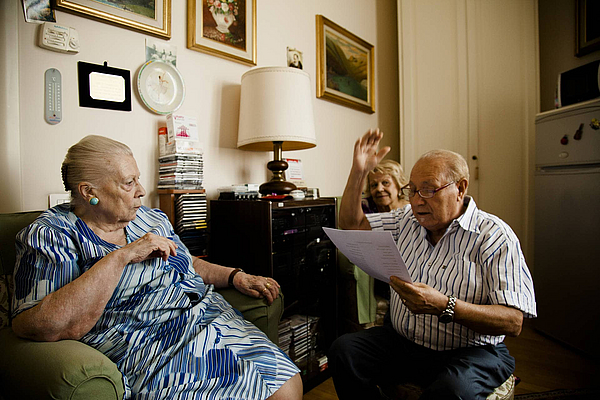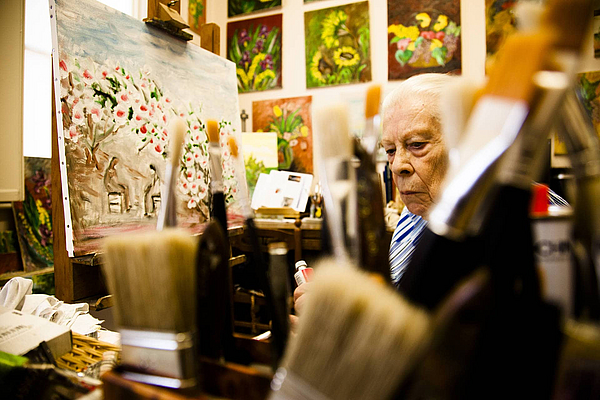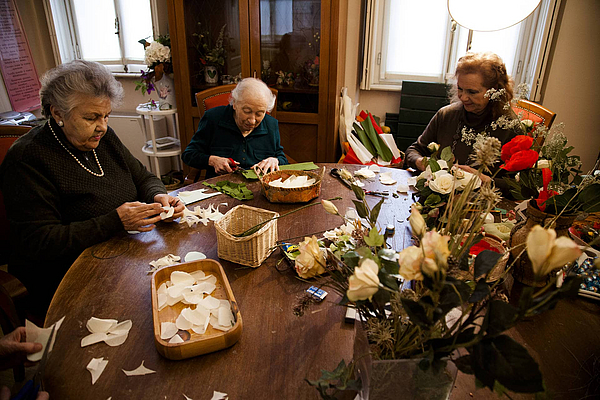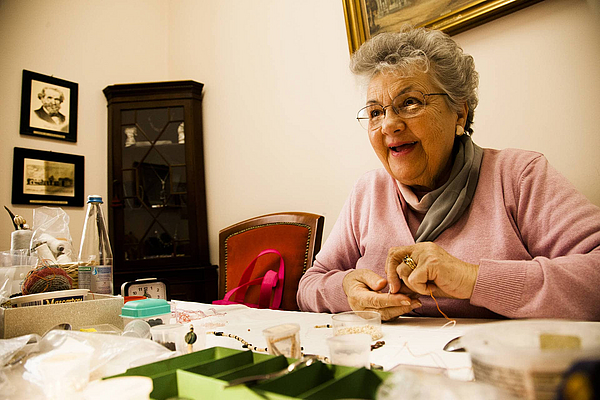You look at the draperies in Casa Verdi's dining hall, and you are somewhat struck by the design of a sort of curtain. If you look carefully, you will feel that it is oddly meaningful. At one point, it seems to become clear: it's a theater stage's curtain!
So you look around, wander through the rooms, meet the Guests, and realize that it's as if they were all just this side of a stage curtain, ready to look around it to the other side or actually to reappear there. It's an opera house's curtain, of course. Here you find those who draw or paint, those who work with computers, those who read or write, and those who play instruments; but when the great or not-so-great singers affectionately come to perform, here in the great hall, everyone dives into the world of opera. Maybe it's because of the presence of a portrait of Verdi - one of Boldini's famous, magnificent paintings, reproduced here; or maybe because of the atmosphere typical of Italian musical culture - yesterday's, above all - that is felt particularly strongly here: the singers first feel cordially welcome, then a bit intimidated by such demanding listeners, by comparisons that are in the air, and even more by a sort of powerful, impassioned expectation of living opera in a big, profound way once again.
But that's not all. The singers say that it's as if they existed here in relation to their older musical colleagues, with those whose fate - lucky or unlucky and in various situations - was to be responsible for communicating the great, beautiful truth of opera.
Even today, some of the Guests directly transmit the art of singing, just as others transmit the art of instrumental performance. Some young students live here, like scholarship holders, and they are assisted in their development; and there are people of various ages who live outside but come here to take lessons and receive valuable advice from the Guests.
I ask myself what it might mean, especially to a singer, to be there with a teacher who has lived a long time with his or her art, and to feel that one is part of a world of musicians, each with his or her own history - and especially to be just two steps away from the great Master's tomb. Perhaps, after the lesson, they go down to the crypt and think about the fact that Pogliaghi's decorations, which celebrate the world of opera, were generously commissioned by Teresa Stolz, the first great interpreter of Aida and other Verdi operas, and a great friend of his.
The Guests of Casa Verdi continue to measure themselves against their art. In their relationship to their instrument or to their compositions, they have constantly to test anew their energy level, the timbre of their vitality, and the state of their strength. Old age includes ongoing acceptance of realities that no one opted for and of the dogged construction of new realities by way of compensation. It also forces people to test their limits, often with increasing frequency, and the dissatisfaction of not being able to possess music as they could in their youth.
Some say that this distances people from music and from its reasons for being. I think that it is the decisive phase in the perception of one's physical and mental limitations and of the precariousness that we have the duty - and must take the trouble - to feel.
Music is always beyond us, unreachable, yet nonetheless inside us, present, functioning. Happy are those who can start off with it already filling them, but happy are those others, too, who can only lean forward to recognize it, think it over again, and feel that it exists.




